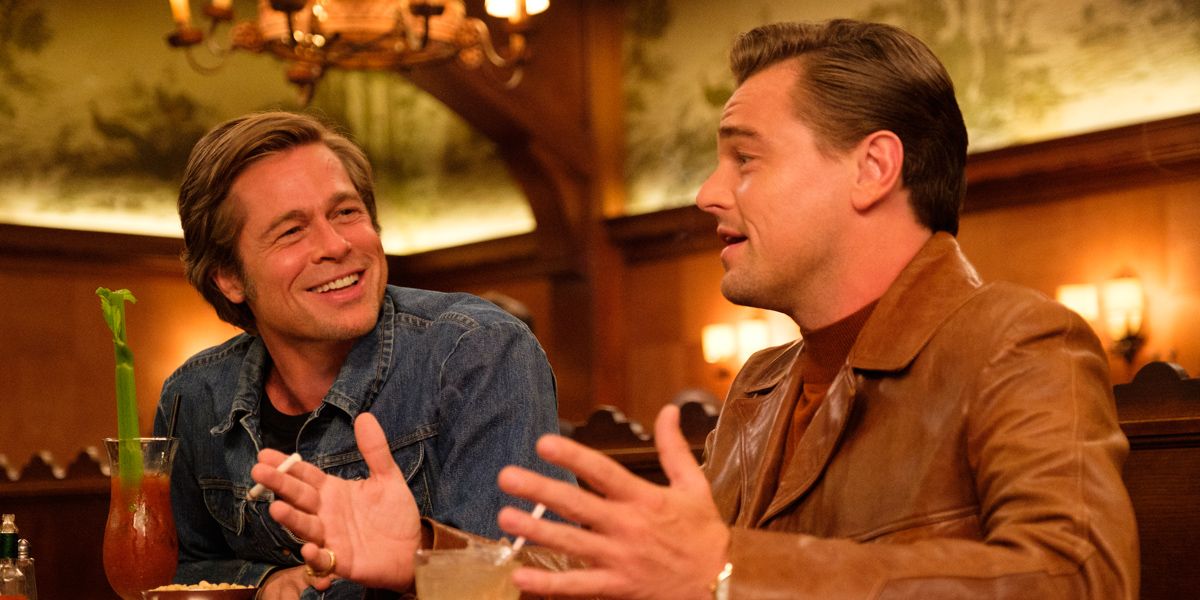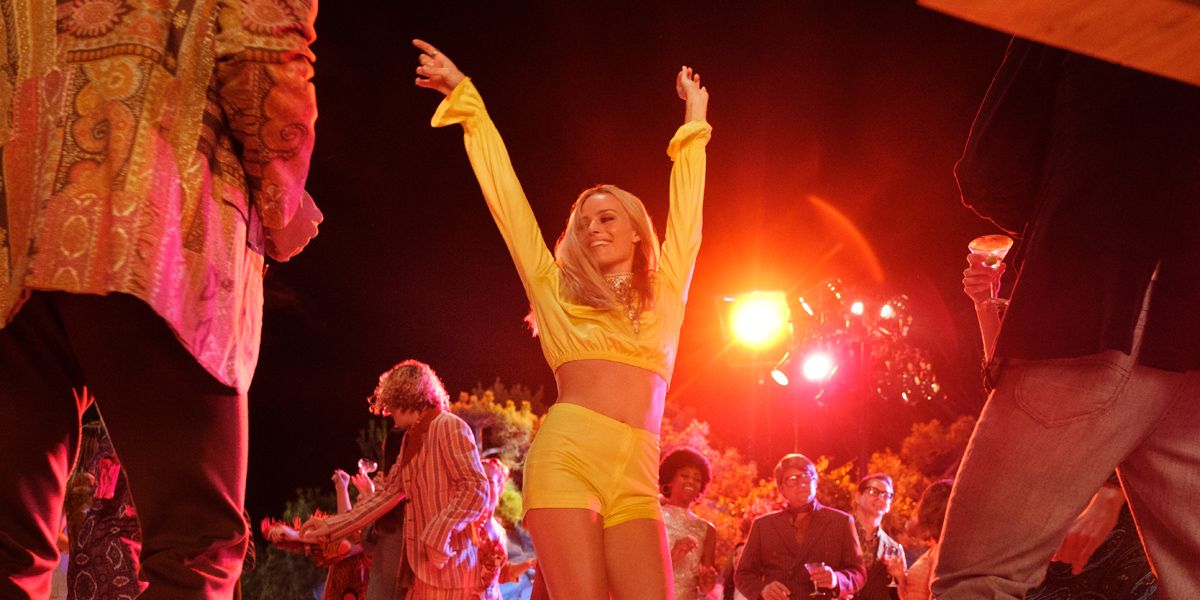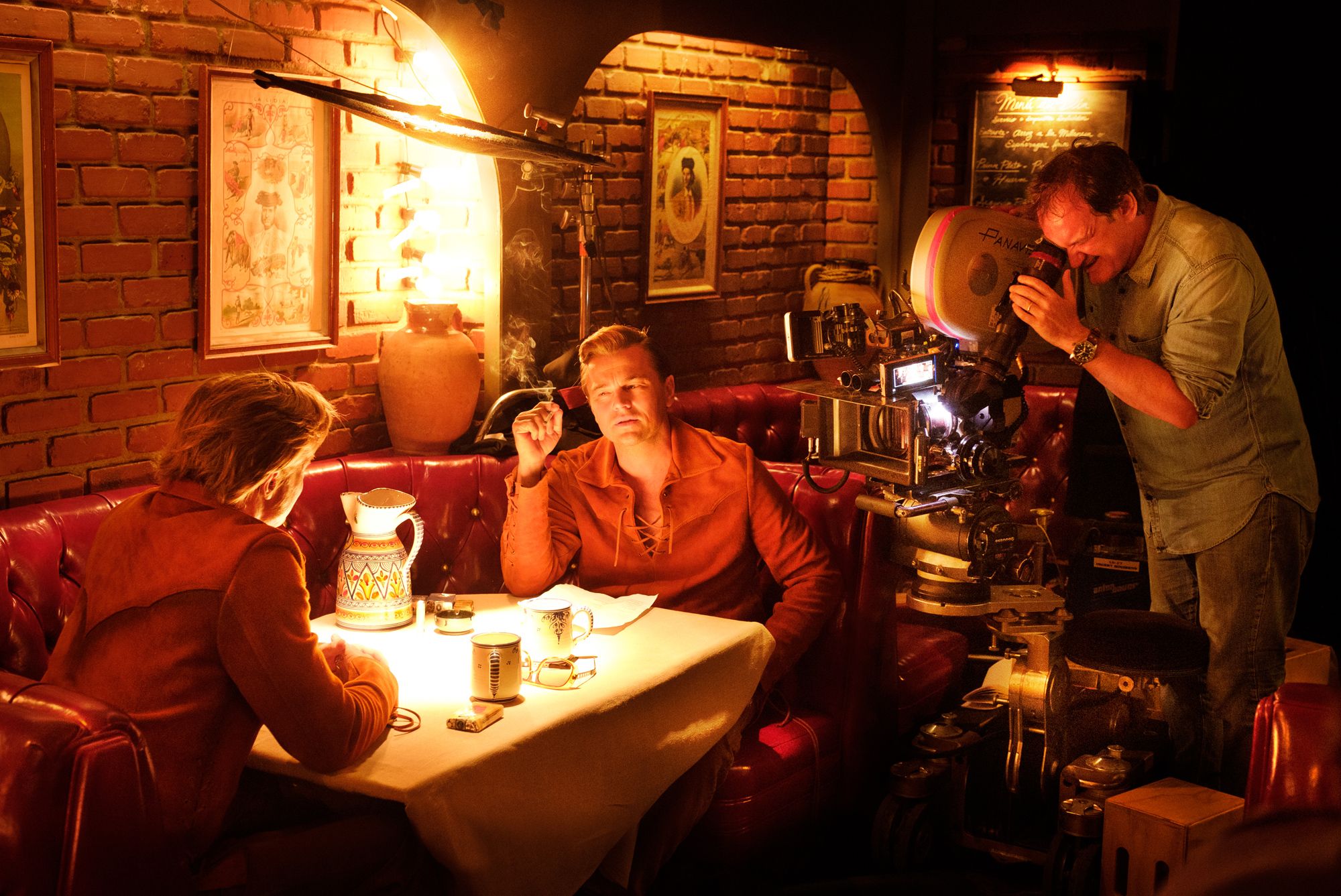
WARNING: The following article contains spoilers for Quentin Tarantino's Once Upon a Time in Hollywood, in theaters now.
A new Quentin Tarantino film is bound to be controversial, but that was especially so in the case of Once Upon a Time in Hollywood. However, this time the point of contention isn't merely the content of the film itself, with its decidedly ahistorical twist on the 1969 Manson Family murders, but about the climate in which it's released.
Once Upon a Time in Hollywood is Tarantino's first film since Reservoir Dogs not to be executive produced by Harvey Weinstein, and the first in his entire career not to be released by one of Weinstein's studios (Miramax and The Weinstein Company). When the extensive sexual -assault allegations against Harvey Weinstein were made public in fall 2017, Tarantino told The New York Times that he "knew enough [about Weinstein] to do more than I did."
Tarantino's failure to stand up to his long-term business partner, as well as the subsequent revelations about how is own carelessness led to the injury of Uma Thurman during a car stunt on Kill Bill, made some people nervous about how his next film might handle #MeToo-adjacent issues. One connection was going to be inevitable, given the historical events that inspired Once Upon a Time in Hollywood: Acclaimed director and admitted rapist Roman Polanski would be a character.

In February 2018, an audio clip from a 2003 Howard Stern interview resurfaced in which Tarantino tried to defend Polanski's statutory rape of a 13-year-old Samantha Gailey (now Geimer) in 1977 as consensual. After it went viral, Tarantino spoke with Geimer, and apologized for his wrong "devil's advocate" argument.
Played in Once Upon a Time in Hollywood by actor Rafal Zawierucha, Polanski is a minor character. He doesn't do much of anything so much as other characters react to his presence. Rick Dalton (Leonardo DiCaprio) is starstruck by the Rosemary's Baby director, a representative of the New Hollywood that's steadily replacing the Old Hollywood of Rick's glory years, moving in next door. Polanski is painted as a great director but decidedly not as a good person. At a party at the Playboy Mansion, Steve McQueen (Damian Lewis) talks about how it's inevitable Polanski is going to make some sort of horrific mistake, and his wife Sharon Tate (Margot Robbie) will then leave him for her other lover, Jay Sebring. It's somewhat uncomfortable that Sebring is played by Emile Hirsch, an actor who himself served 15 days in jail in 2015 for strangling Paramount executive Daniele Bernfeld.
The real meat of the #MeToo-relevant content in Once Upon a Time in Hollywood isn't with the Polanski character or even the questionable casting of Hirsch, but in Cliff Booth, the co-lead played by Brad Pitt. Cliff is Rick's stuntman, driver and closest friend. He's cool, attractive, emotionally supportive, able to match Bruce Lee in a fight ... and he probably murdered his wife. We never see exactly what happened to her, but everyone around town talks about the probable murder like an open secret. Cliff is only employable because he comes as a package deal with Rick.

This isn't the first time a Tarantino movie has left it a mystery about whether an otherwise-likable character committed a heinous act. Remember in The Hateful Eight how Major Marquis Warren midway through the movie tells a story about how he raped the grandson of Confederate General Sanford Smithers. In that film, it seemed possible, based on context, that Warren made up the story for the sake of provoking Smithers and starting a fight.
It's clear that Tarantino sees a lot of himself in Rick Dalton. The thematic thrust of the film is how Rick feels out of place and insecure in a rapidly changing film industry. Similarly dramatic changes are going on in Hollywood today, and Tarantino is an aging traditionalist when it comes to the medium of film. But if Rick is Tarantino's stand-in, who is Cliff supposed to represent?
It's weird, and more than a little creepy, to think of Cliff as a Weinstein analog. If that's what he's supposed to be, then is Tarantino trying to argue that Harvey Weinstein was actually the coolest guy in the world aside from that little crime thing and that's why they stayed friends for so long? It seems unlikely.
However, even if he's not directly based on Weinstein, his character is an acknowledgement of just how much people are willing to tolerate, and look the other way, when it comes to friends, co-workers and celebrities. In an age where we struggle over whether to "cancel" our faves when they become too problematic, Once Upon a Time in Hollywood reminds us this has always been an issue with the entertainment industry, just one most people had less exposure to.
Is the movie critical, supportive or neutral in regard to Rick looking the other way in regard to Cliff's probable crime? It's confusing. Their friendship is depicted in a generally positive light, but it's also treated as something that needs to come to an inevitable end. It's difficult to work out just what Tarantino is trying to say about being friends with violent men. Once Upon a Time in Hollywood is undeniably uncomfortable in this regard, but it's also fascinating to think about.
Written, directed and produced by Quentin Tarantino, Once Upon a Time in Hollywood stars Brad Pitt, Leonardo DiCaprio, Margot Robbie, Burt Reynolds, Al Pacino, Tim Roth, Zoe Bell, Michael Madsen, Timothy Olyphant, Damian Lewis, Luke Perry, Emile Hirsch and Dakota Fanning.
Add Comments